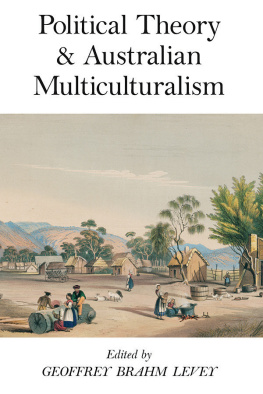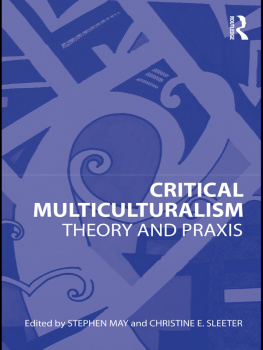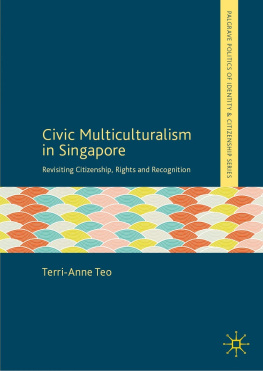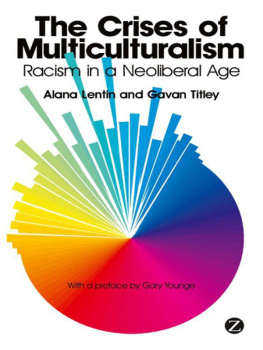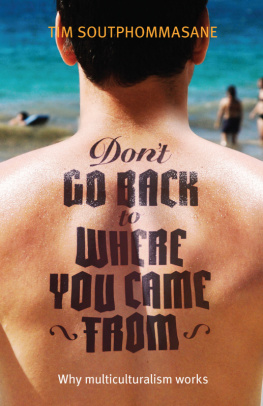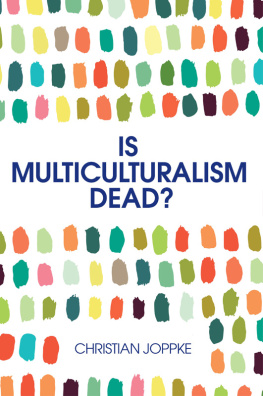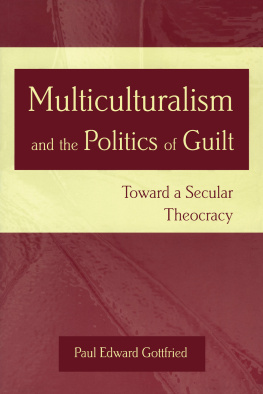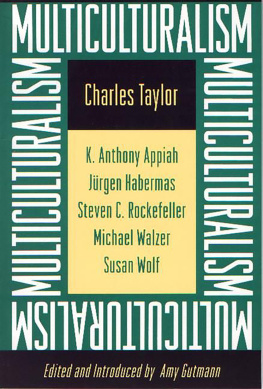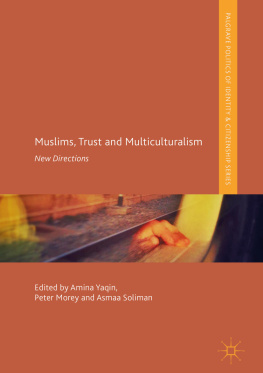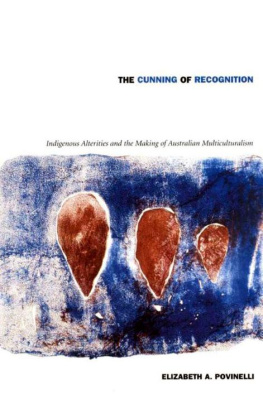Acknowledgements
Multiculturalism has been a private interest of mine and I wish to thank people who have encouraged me to pursue this passion as an intellectual exercise. In this regard, Professor Alistair Fox of the University of Otago has to be mentioned first. It was my hope to have him write an extended piece on New Zealand biculturalism as a postscript to this monograph. Although I have included a section on the theme, I regret very much that I was not able to supply him with my final edited manuscript to give him time in which to compose what would have been a masterly postscript. Through his invitations to seminars, and those of Professor Hilary Radner, I also managed to reconnect with two of my PhD students, Vijay Devdas and Brett Nicholls, both accomplished academics at the University of Otago, who have given a sympathetic ear to my ill-formed ideas on multiculturalism. The university was also the venue of my first lecture on the pastness of multiculturalism, and a related paper on the subject and postcolonialism, which was supported by an invitation to the university by Chris Prentice. I wish to thank her for providing me with a seminar in which I could raise a number of ideas. My presence at the University of Otago led to an invitation by Mark Williams to attend a symposium at the University of Canterbury, Christchurch, in 2005, where, by a fortunate coincidence, I met Ghassan Hage and heard his paper on multiculturalism and the war on terror. Professor Hage is a leading Australian multicultural theorist who has repeatedly drawn our attention to a central paradox of multiculturalism: the reproduction of majoritarian power by the very principles of cultural pluralism and tolerance affirmed by the majority.
Many years ago, Emeritus Professor Laksiri Jayasuriya of the University of Western Australia asked me to address a gathering of Australian businessmen on the importance of understanding cultural difference when it came to dealing with Asia. It was the first and perhaps the only time I have pretended to be a public intellectual and got my picture in the West Australian . I said little of value then, but I thank Professor Jayasuriya for giving me, in a variation on Andy Warhols memorable phrase, my own fifteen minutes of media glory. Following on from that exposure, my friends Krishna Somers and Steve Arasu, and my erstwhile colleagues at Murdoch University, notably Bob Hodge and Horst Ruthrof, continued to alert me to theories of cultural difference. In this context, other academic friends and research students acted as sounding boards now and then. Among them are Stephen Slemon, Khachig Tllyan, Richard Nile, Greg Bailey, Deborah Robertson, Elisa Bracalente, Makarand Paranjape, Harish Trivedi and Martina Ghosh-Schellhorn. An invitation by the University of Mauritius to act as an external advisor to the English Department meant that I was exposed to many people in that island state who were directly involved in the practice of multiculturalism. I wish to therefore place on record my indebtedness to all members of the University of Mauritius English and Linguistics Department. An earlier invitation by Jim Clifford and Chris Connery to the University of California, Santa Cruz, made it possible for me to engage with the History of Consciousness Group there. I learnt much that has made its way into this monograph from the group. My tenure as Professor of English at the University of Alberta introduced me to scholars in Canada whose ideas have influenced my engagement with multiculturalism. In this respect I wish to acknowledge my discussions with Sneja Gunew, Terry Goldie, Margery Fee and Chelva Kanaganayakam.
I was born in Fiji, but left the country for New Zealand when I was eighteen. My return home after undergraduate studies in New Zealand and, a little later, in Australia was for two short visits of two years and twenty months each, which means that the vast bulk of my life has been spent in Western democracies, primarily Australia, New Zealand, the United Kingdom and Canada. But the Fijian connection is strong and my experience there has been foundational for my understanding of race and multiculturalism. I must therefore acknowledge people who remain part of that connection. They are my parents Hari K and Lila W Mishra, who loved me more than I deserved and who valued a disciplined mind; my sister Shiro Shankar and my brother Hirday Mishra; my old friends Krishna Datt, Sachi Reddy, Brij Lal and Som Prakash; and my scholarly reader over my shoulder Sudesh Mishra. Memory recalls them, but the actual composition of this monograph has grown out of my wife and childrens lives in Australia, my encounters with an array of ethnic communities in Perth, my readings of key multicultural texts and my recent work at Emory University on the Salman Rushdie archive. Deepika Bahri, an important postcolonial scholar in her own right, made my Emory visit possible, and I want to thank her for it, and for much else besides. I thank Salman Rushdie for finding time to talk to me during my research visits to Emory. I am indebted to Emory for allowing me to cite material from the Rushdie Papers deposited in the universitys Manuscript and Rare Book Library. My work on Salman Rushdie is part of my current Australian Research Council Professorial Fellowship, and this monograph too could not have been written were it not for the luxury of full-time research made possible by the fellowship. The editing of the monograph took place in the pleasant surroundings of the Humanities Research Centre, Australian National University. I thank Debjani Ganguly for inviting me to the HRC and for her generous hospitality. I wish to thank Helen Koehne and Lucy Davison for copy-editing the manuscript and for alerting me to oversights, accidental as well as substantive. At Melbourne University Press, Elisa Berg, Diane Leyman, Lily Keil and Gillian Hutchinson made the publication of the book so effortless. Writing is a lonely act, undertaken in the solitary confines of ones library, but peace of mind is essential for it and that peace of mind can only come from the institution one works in and from ones family. Although my field of specialisation is English literature, in which I hold a chair, were it not for the interdisciplinary ethos of Murdoch University I doubt very much if I could have written this book on multiculturalism, or indeed some of my other works. For me, Murdoch has been a truly exceptional university, where my colleagues in English and Creative Arts have been enormously supportive throughout my career. I end by thanking my own children and their spousesmy son Rohan and his wife Kylie; my daughter Paras and her husband Dave. My wife Nalini has stood by me through all these years, the good as well as the difficult, and her common sense has often corrected my excesses. The book is dedicated to my grandchildren Anjali Mishra, Tara Mishra, Percy Meates and Vivian Meates, who may one day reflect on matters raised here. Like much else I have written, the errors and oversights are my own. In this instance, though, I acknowledge even more readily the fact that the multicultural scholars whose names appear above would have written a much better book.
Vijay Mishra


